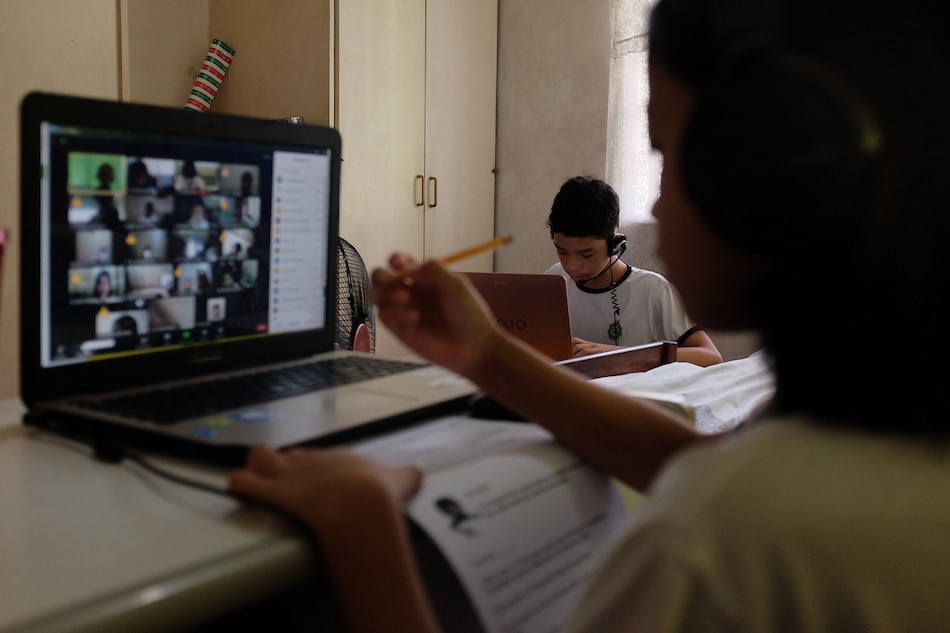Philippines 'doing everything to prepare' for PISA 2022 despite pandemic | ABS-CBN
ADVERTISEMENT

Welcome, Kapamilya! We use cookies to improve your browsing experience. Continuing to use this site means you agree to our use of cookies. Tell me more!
Philippines 'doing everything to prepare' for PISA 2022 despite pandemic
Philippines 'doing everything to prepare' for PISA 2022 despite pandemic
Jaehwa Bernardo,
ABS-CBN News
Published Mar 23, 2022 03:38 PM PHT
MANILA — The Department of Education said Wednesday it continues to prepare Filipino students for an upcoming international learning assessment where the country previously showed a dismal performance, despite the challenges posed by the COVID-19 pandemic.
MANILA — The Department of Education said Wednesday it continues to prepare Filipino students for an upcoming international learning assessment where the country previously showed a dismal performance, despite the challenges posed by the COVID-19 pandemic.
"We're doing everything to prepare them under the difficult circumstances of the pandemic," Secretary Leonor Briones said in a press conference, referring to the Programme for International Student Assessment (PISA).
"We're doing everything to prepare them under the difficult circumstances of the pandemic," Secretary Leonor Briones said in a press conference, referring to the Programme for International Student Assessment (PISA).
The PISA, conducted by the Organisation for Economic Co-operation and Development (OECD), is a computer-based assessment that measures 15-year-old students' performance in mathematics, science, and reading.
The PISA, conducted by the Organisation for Economic Co-operation and Development (OECD), is a computer-based assessment that measures 15-year-old students' performance in mathematics, science, and reading.
The Philippines fared worst among 79 countries in reading comprehension, and second lowest in both mathematical and scientific literacy in the 2018 PISA, which was also the first time the country participated in the assessment.
The Philippines fared worst among 79 countries in reading comprehension, and second lowest in both mathematical and scientific literacy in the 2018 PISA, which was also the first time the country participated in the assessment.
ADVERTISEMENT
Briones said although the country had poor rankings in the previous PISA, some Philippine schools — including ones from the cities of Baguio and Pasig — had scores "equal to or superior to the scores of the OECD countries."
Briones said although the country had poor rankings in the previous PISA, some Philippine schools — including ones from the cities of Baguio and Pasig — had scores "equal to or superior to the scores of the OECD countries."
"We believe and we hope that in spite of the pandemic... we are hopeful that the regions who did well [in the 2018 PISA] will do well as expected," she said.
"We believe and we hope that in spite of the pandemic... we are hopeful that the regions who did well [in the 2018 PISA] will do well as expected," she said.
In preparing for the test, the DepEd is familiarizing learners with computer-based assessments, said Education Undersecretary Nepomuceno Malaluan.
In preparing for the test, the DepEd is familiarizing learners with computer-based assessments, said Education Undersecretary Nepomuceno Malaluan.
"Because the way you take the exam in school, class, traditionally, is slightly different from how the PISA is being undertaken," said Malaluan.
"Because the way you take the exam in school, class, traditionally, is slightly different from how the PISA is being undertaken," said Malaluan.
The DepEd also partnered with universities and research institutes for PISA interventions.
The DepEd also partnered with universities and research institutes for PISA interventions.
Malaluan stressed that the PISA "is not a race to the top, but this is about getting feedback."
Malaluan stressed that the PISA "is not a race to the top, but this is about getting feedback."
The 2022 PISA is set to be administered from the end of March to April. A total of 188 Philippine schools will participate in the assessment, with 42 learners from each school taking the exam.
The 2022 PISA is set to be administered from the end of March to April. A total of 188 Philippine schools will participate in the assessment, with 42 learners from each school taking the exam.
In March 2020, Philippine schools banned in-person classes and shifted to remote learning, which raised concerns of learning losses.
In March 2020, Philippine schools banned in-person classes and shifted to remote learning, which raised concerns of learning losses.
Elementary and secondary schools began implementing limited in-person classes in November 2021, complementing remote learning methods.
Elementary and secondary schools began implementing limited in-person classes in November 2021, complementing remote learning methods.
RELATED VIDEO
Read More:
Department of Education
education
PISA
2022 PISA
Programme for International Student Assessment
international assessment
Philippine students
Filipino students
ADVERTISEMENT
ADVERTISEMENT



